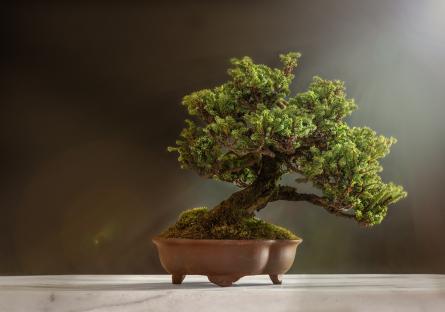
As Pam from The Office says: “pobody’s nerfect.” We all have flaws and imperfections. “To err is human.” Learning to accept our shortcomings can be quite challenging but it can do our mental health a world of good. Sometimes all it can take is a change in perspective. The next time you feel anxiety about something in your home breaking or start worrying about a line appearing on your face, consider looking at the world through a wabi-sabi lens.
What is Wabi-Sabi?
Translating the Japanese phrase wabi-sabi into English can be tricky as the word combines two complex aesthetic ideas. It is typically defined as “wisdom in natural simplicity” or “flawed beauty.” Wabi-sabi is a philosophy that encompasses visual arts, nature, household objects, physical health, and our way of being in the world. What it represents is the idea of imperfection. Wabi-sabi encourages us to find beauty in the flaws of things and people: the wear & tear of physical objects, the decay of natural landmarks, the signs of aging on our bodies. In wabi-sabi our imperfections are what make us beautiful, our scars the things that most lend us grace.
This can be a bit of a difficult concept to wrap our heads around, especially coming from most cultures where what is most highly valued are things that are without flaws. Shiny, new, factory-fresh, free of blemishes, untarnished youth, seamless: these are often held up as markers of quality and desirable characteristics. When something breaks, we’re encouraged to discard it and trade up or fix it and mask the repair work.
Wabi-sabi encourages us to hold onto what is good even as it falls apart; if we must fix it, we don’t hide the effort. Kintsugi is a Japanese art technique often associated with wabi-sabi. It involves mending broken ceramics with powdered gold and lacquer, creating beautiful pots and teacups by turning their fractures into treasures.
Embracing Imperfection
Adding a wabi-sabi perspective to your mental toolbox can be a great way to help you mitigate stress. Much like how the practice of memento mori—meditating on the inevitability of death—can help us accept our mortality, using a wabi-sabi approach can help us come to terms with our mistakes and flaws. Instead of looking at our aging body with dread, we can see its transformation as something interesting, maybe even beautiful in its own right. We could look at our own bad handwriting as a sign of our personality as opposed to a defect in penmanship.
Coming to see our flaws as a holistic part of ourselves—something that is essential to our being and not an error or failing in need of correction—is a necessary step toward self-acceptance. Being able to accept oneself can lead to a reduction in anxiety and stress.
Repair Instead Of Replace
Wabi-sabi can also be an ecologically conscious philosophy. The next time something you own breaks, ask yourself if you NEED to replace it. Maybe you don’t need to replace that appliance or personal electronics because the paint is chipped or because there’s a shiny new model on the market. Wabi-sabi teaches us to see worn down, well-loved objects as being worthwhile in their own right. Newer isn’t always better—embracing that viewpoint could save you money as well as keep you from filling up landfills with your discarded goods.
Spend Time In Nature
The contemplation of nature is an important part of wabi-sabi. The bonsai tree is often associated with the practice because of the deliberate flaws the little trees possess. Nature is all about imperfections: the shedding of leaves, feathers, and antlers; stones worn down by wind and water; wood chipped and rotted by the passage of time; animals aging and going through the daily drama of survival. Spending time in that environment and recognizing that you are a part of it and will age and "shed" in your own right can be good for you: studies have found that spending time in natural environments like forests can lead to lowered blood pressure, boosted cognition, improved mental health, and improved autonomic & immune function.
Simplicity In Living
Wabi-sabi also encourages us to declutter and simplify. After all, it’s hard to appreciate the beauty of a cracked tea cup if it’s surrounded by a mound of junk. Take a look at the places where you spend a lot of time: what do you want to focus on there? What’s getting in the way? Pare down and highlight the things that give you pleasure and comfort. Researchers have found that decluttering is a stress-relieving activity, so taking that time to clean up and simplify your surroundings can pay off for your mental health.
Be Grateful For What You Got
One last thing that wabi-sabi can inspire us to do is be more grateful. By focusing on our imperfections, it can make us feel grateful for what we have. When we can look at our scars and wrinkles as beauty marks and see wear and tear on our favorite possessions as signs of them being well-used and loved, it makes it easier for us to appreciate what’s good in our lives. Studies have shown that people who regularly express and feel gratitude tend to be happier and have a more optimistic outlook on life. Consider starting a gratitude journal and writing 3-5 short sentences in it every day about what you’re grateful for. Try not to repeat yourself: the act of thinking long and hard to find the things you’re grateful for could help you take stock of your life and find things about it that surprise you.
Article by Austin Brietta
Want more wellness tips? Check out these stories: